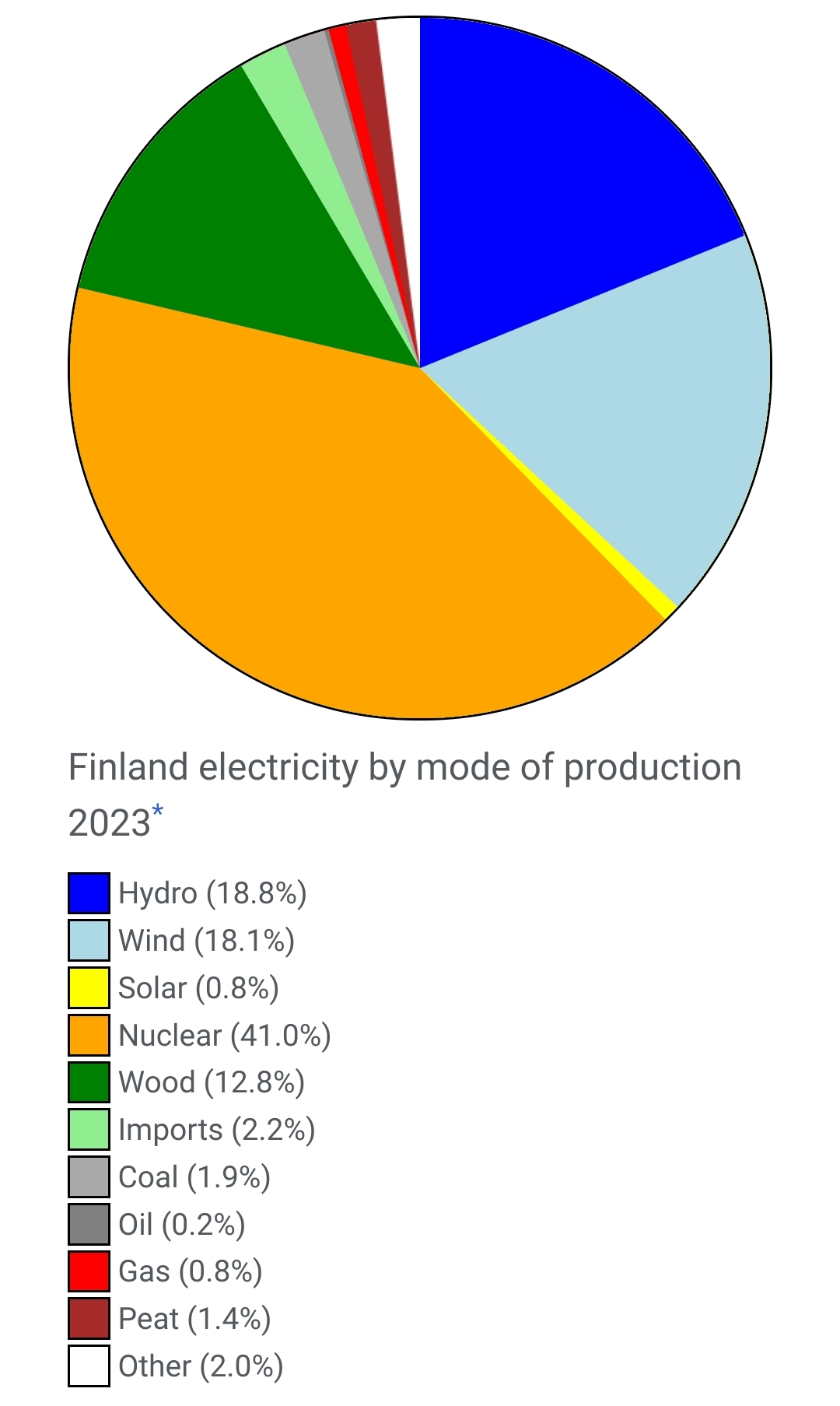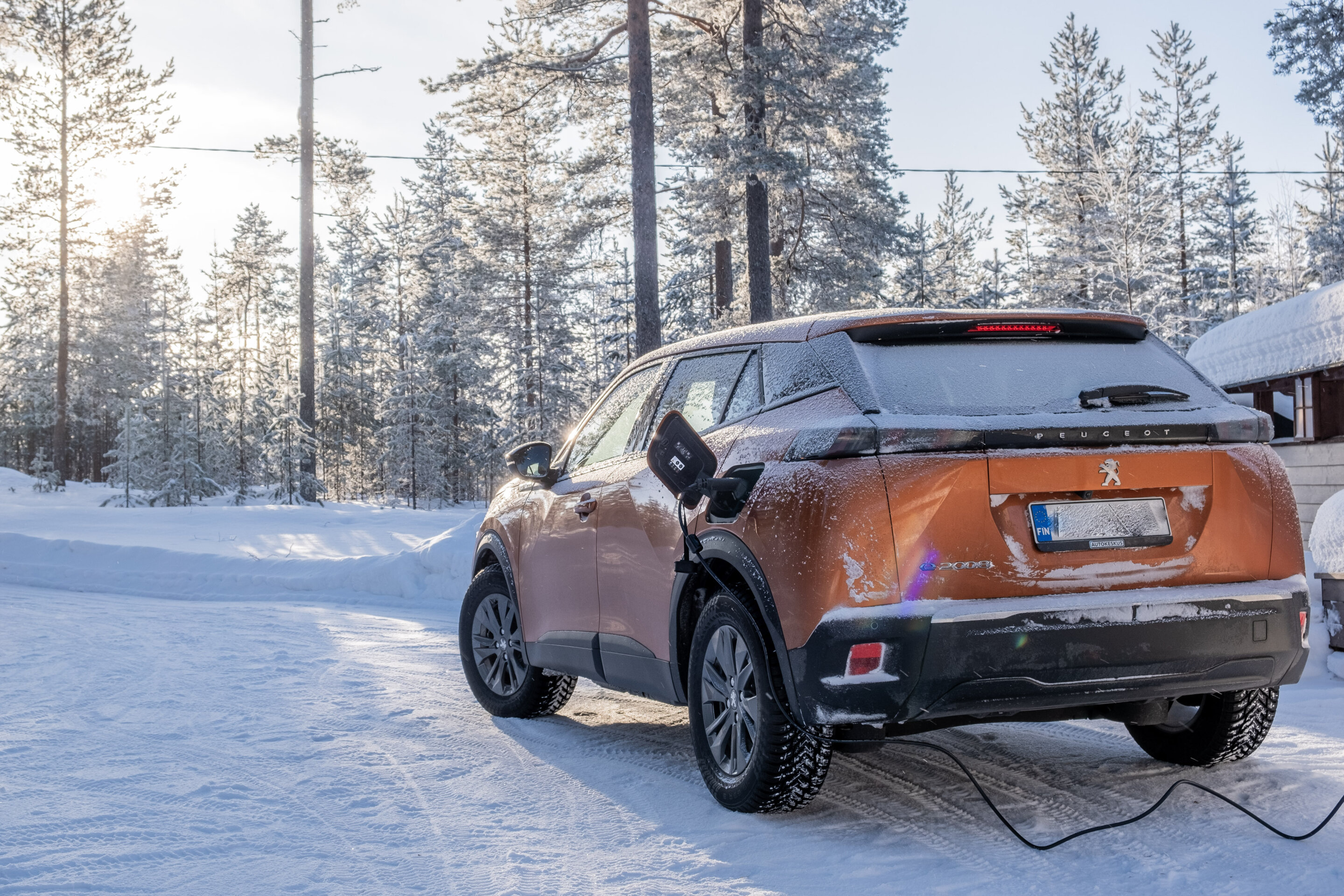Maybe EVs are not a comprehensive climate solution??
Perhaps there should be policies in place to lower the cost of electric cars so more average income people can replace their ice cars?
Perhaps the tax credit should be down payment assistance of the same value for those who purchase the EV if they have a household income below 150k. Maybe limit it to vehicles below a certain total cost as well.
Up front cost is a bigger road block than taxes.
Aren’t your just describing the current credit? There’s a mechanism for the dealer to provide the incentive at the time of purchase vs during tax filing the following year. There’s also an income limit for eligibility.
That being said, the whole point is to move battery supply chains to the US, not to actually make cheap cars for folks.
Perhaps there should be policies to even out the wealth distribution.
Yes, but that’s not specific to EVs.
deleted by creator
This is why I’m frustrated with the US and the EU, who are placing heavy penalty tariffs on Chinese EVs.
Uyghur slave labor should not be seen as the solution to our emission problems. Tariffs are the right thing here, albeit for the wrong reasons.
That is a very good point I had not considered, thanks for pointing that out!
Can also eliminate all corporate offices, if your job can be done on a computer, there shouldn’t be an office. Unless you need to be physically at your job, no need for you to be commuting at all.
The concept of corporate buildings isn’t even that old.
There are, with the federal government alone paying 7k on most EVs sold in the US. The problem is that they are neoliberal flat subsidies applied at the point of sale that needed Republican support to enter law and as such companies just tack on 7k to the price customers are willing to pay anyway.
What we need is to incentivize manufacturers to focus on bringing down costs by focusing on things like LFP batteries and smaller vehicles, but manufacturers are currently incentivized to make larger vehicles because people are willing to pay a lot more than the added space cost to make, thusly increasing margins. At the very least making the full subsidy only available on vehicles under 25k, with a decreasing subsidy for vehicles under 50k would probably help, but you would need to be ready and willing to call manufacturers on their near certain attempts to get around it.
Some actual price wars between manufacturers would help too, but US auto manufacturers will fight tooth and nail to forestall that possibility.
Public transport would be a much more effective and cheaper solution, but we’re all looking at EVs because it means not having to change anything about the status quo.
The problem is that to effectively fight climate change you need to cut emissions in five to ten years, and not fifty to a hundred, and in a nation where even a solidly blue locality openly dedicated to fighting climate change can take ten years and hundreds of millions of dollars to open a bus lane, it should not come as a surprise that many people with the resources to do so are choosing an imperfect solution now rather than running for office so they can get a bus line to their neighborhood in a few decades.
This is before we get to the fact that even nations which world leading public transport systems known for connecting to every small village and house still have plenty of cars and highways, people just don’t try and use them to for every trip in a dense city and plenty of people can get by without owning a car at all. We need to eliminate all emissions, not just city emissions, and we needed to do so ten years ago.
Yes north america needs more common, frequent, and reliable mass transit and the fact that the richest country in the world’s mass transit is in such a state is a national disgrace, but that is not opposed to the quick elimination of oil burning cars but rather should be done in parallel to them.
Thanks for such a well reasoned response 😁 My knee jerk “public transport good” response did miss a lot of the subtlety you’ve captured here!
The problem is that to effectively fight climate change you need to cut emissions in five to ten years,
Which automatically excludes “The Great eCar Transition” as that takes generations.
Generations? The average American passenger vehicle is 14 years old, so if tomorrow all new cars were electric, you would have haved car transport emissions within 15 years, and be at a 75 percent reduction within the first generation. Cut out fossil fuel subsidies so people are paying the 8 or so dollars per gallon it actually costs for gas and incentivize US manufacturers to actually build affordable cars and you’ll see much quicker adoption that what normal wear and tear causes.
Of course that isn’t going to happen tomorrow in the US, but you are also going to have a lot of vehicles already sold in the decades prior and which tend to stay on the road longer.
Compared to the fifteen or so years it takes to build a single light rail line, much less intercity high speed rail, and you are not going to be able to replace half of all car traffic in a single build cycle, much less reach 75 percent within thirty years, by which point you’re trying to replace all traffic in the very small towns and unincorporated areas that even nations renowned the world over for their public transit connectivity often struggle to reach.
Does the US need to build more mass transit, yes. Can it do so faster than it already buys new cars, no.
Go look at their models instead of doing napkin math.
Then go look at where the displaced ICE cars go, let me know how many of those are going straight to the junk yard.
Yes. Easy patch.
I mean, public transport is a fucking ton of money to start up, and anywhere outside an urban center it is not just a loss but almost a total loss due to distances.
I remember being in a meeting in grad school to discuss the school bus system as part of the student review of finances. We had a bus route that went to another town a good distance away, and it was nearly always empty or with like 2 people on it, so they basically said once the grant money is gone we will shut down this route. We can’t afford to put good money into something expensive and isn’t getting used.
I realize there is a lot about car culture feeding that, but it remains a massive obstacle. Switching from existing structures like parking etc to public transport? How? How fast? What do we do with that space? Who pays for it? I’m frustrated by the system but we can’t just start from a blank slate, we have to work with it.
Switching from existing structures like parking etc to public transport? How? How fast? What do we do with that space? Who pays for it? I’m frustrated by the system but we can’t just start from a blank slate, we have to work with it.
Are you serious? I was in the US just once, and within 3 days, I felt depressed. I had originally planned to travel through the US and CA for two weeks but following a one-week work thing and decided to just return after following obligatory week 1.
At least two thirds of basically any downtown appears to be parking and there’s at least a further 15% that’s overly wide roads.
You could remove the concrete and build parks which would improve those cities’ water household and have made me feel less depressed. You could build housing. You could build stores. You could build third places. You could make downtowns livable.
And it’s definitely possible. Because those places all existed before they were bulldozed to better suit cars.
The fact that the remote/rural bus stops aren’t being used is not a fault of public transportation itself. But rather, it’s the fault of route design/planning.
Isn’t route design/planning part of a public transportation system? And even if it weren’t, it’s still a real and valid issue that would need to be addressed. Even if the plan is just to force everyone into high-density housing against their will, you still have the last mile problem, just like cable and internet companies. Either the bus stops at every building (and is therefore too slow to be useful) or some people have to walk farther than others, which is fine for most of us, but disabled/elderly/injured people shouldn’t be further disadvantaged as part of our transportation strategy.
America specifically doesn’t want to build sane infrastructure, we’ve gone too deep on car culture over the last century+. Going out of the way to build self-driving cars rather than running more rail (or even bus, or trolley) is a solution hunting for a problem that shouldn’t exist. Especially given how much car prices have sharply increased in the last decade. Nobody will be able to afford personal transport, people will continue to use older cars for longer periods of time, or get into insane mortgage-sized car loans.
…but we want our “independence” and “freedom” dammit! … /s
Even so, the status quo changes with EVs. You see it with dealerships/shops charging more for simple repairs, manufacturers trying to go to subscription models for basic car features.
So much of the US is car-based:
- Regular maintenance at a shop to pay for parts and fluids
- The oil industry living at its current large size (it will still need to exist even if we were all EV, until every other product that uses it switches to something else)
- Refueling at gas stations that can upsell you on impulse-buy food, drink, smoke, booze
- Gas station price wars to spur pointless driving around, pointless media attention (which causes further driving around of media vehicles), pointless arguments and chaos
- Supply chains generating every part, widget, and accessory, with the assumption there will be frequent replacement
- Training for mechanics and techs on servicing all these convoluted chemical powered mechanical systems
- Emissions testing and regulation used by municipalities as a money grab
- The engineers paid to design these machines
- Tax on fuel and other car consumables
- The aftermarket accessory market selling upgrade gizmos to customize, trick out, make louder, make more powerful, make coal-rolling
- Even parts theft like catalytic converter theft rings
Don’t forget about the massive insurance scheme designed to deal with the aftermath of millions of largely preventable collisions and tens of thousands of deaths each year, the regulatory complex, the adverse health impacts and burden on the healthcare industry, and perhaps biggest of all - the infrastructure (and space) needed for all of this unnecessary driving, all of which come at the expense of all other forms of transportation. The scale of the auto industry is mind boggling, especially considering how useless most of it is.
Before reading, I’m expecting:
- focussing only on the production emissions
- pretending only coal powered electricity exists
- anecdotal evidence
After reading:
focussing only on the production emissions- pretending only coal powered electricity exists
- anecdotal evidence
- misdirection
The argument is “rich people consume more”. Which is true, and their emissions are higher because of it. Driving electric is still better than gas though.
Electric cars are better than gas, but the extensive car infrastructure needed to sustain cars remains the same. The real solution is having viable alternatives to driving to reduce the need for car use altogether.
It’s not an instant solution, obviously. I have been cooking and heating electric at home for years. For most of the first year, that was coal powered electricity.
A friend of mine made that same argument as you. “But our power is coal, you’re just throwing away money”. Well, a year later, we have green power and gas is hella expensive.
Now he’s complaining about gas prices.
Don’t be him, think more than one step ahead.
This, the researchers note, is because wealthier people in general have a bigger carbon footprint—they use more electricity, which is most often produced at a coal-burning plant,
Blatantly untrue.

Even without that obvious lie: Well, rich people driving ICE cars would have an even bigger footprint. What point is this trying to make?
Technically, it’s not wrong that worldwide the largest method of electricity generation is coal, but it does tend to be far smaller and shrinking in the richer western nations with lots of EV’s people are probably thinking of, even before getting to the whole electricity is on track to be made carbon neutral a lot sooner than gasoline thing.
I’m actually very impressed that Finland managed to avoid the ‘clean LNG’ that North America got sold on, good work.
This paper takes it’s data from a survey in Finland, so I believe it should use the Finnish power mix in it’s conclusions or at least compare to it.
Also, even using 100% coal power an EV emits less CO2 than an ICE car over the same distance. It comes down to rich people emitting more CO2 in general, which was known, and I don’t see the need for the focus on EVs. Smells like click bait conservatives are gonna abuse in their BS “EVs have higher emissions than ICEs” arguments. OP already made that mistake.
Edit: The article title is click bait. The actual research paper is titled
But can it drive to Lapland? A comparison of electric vehicle owners with the general population for identification of attitudes, concerns and barriers related to electric vehicle adoption in Finland
which makes more sense.
Ya, if the article is using Finish survey data than it’s definitely ridiculous to talk about it being powered by coal, I had assumed that given the article’s presentation they were at least looking at gobal statistics.
Given the the title of the paper they got this from, if they are not getting paid by an oil company somewhere already they really should work on collecting the free money for the work they are already doing.
I think the study analyzed the footprint of the person, not the vehicle:
In this new study, the research team investigated whether consumers who purchase and drive such vehicles have a smaller carbon footprint than other consumers
The merits of electric vehicles are irrelevant to their study - and their study is irrelevant to the merits of electric vehicles.
So maybe they’re not lying (or maybe they are, if they made a direct claim about the power mix of the Finnish grid), but they’re definitely far from barking under the correct tree. They’re barking in a different forest, not of transport economy, but of wealth and consumption. :)
Quoting myself from another answer:
This paper takes it’s data from a survey in Finland, so I believe it should use the Finnish power mix in it’s conclusions or at least compare to it.
And while the study seems to make sense, the article is just awful clickbait.
they use more electricity, which is most often produced at a coal-burning plan
Cool. So we can completely discount this paper because it is clearly a giant lie.
No one thing is a comprehensive solution. Even a completely renewable powered grid isn’t a comprehensive solution.
No one thing is a comprehensive solution.
You’ll be surprised one day when you encounter those people.
I view EV’s as a solution that consolidates and shifts the creation of pollution elsewhere.
One of the arguments I hear a lot is that electricity is still generated at coal plants/dirty sources. My view is by using EV’s eventually the dirty energy generator can be replaced with nuclear or other clean sources negating the entire argument.
Ok even if it does shift it, shouldn’t big power plants be way more efficient and clean than hundreds of thousands of little engines?
You also have to account for transmission losses and losses in the battery and at every conversion along the way. But also things like regenerative breaking help make electric more efficient as well. It would not surprise me though even with all that if electric was still more efficient than ICE even if the generation was completely fossil fuel based. Just pointing out that it is not just about the efficiency of the generation of power.
As an argument for efficiency: If you drive a truck that drags an EV behind it (thus charging the EV), and then you drive the EV, you will get more total range than if you just drove the truck by itself.
That’s just how much more efficient EV designs are than traditional ICE vehicles.
No doubt: Richer people can afford new shiny things more often. And electric cars are new shiny things right now. But …
To learn more, the researchers obtained data from the CLIMATE NUDGE survey, which was a questionnaire sent by other researchers to thousands of people across Finland in 2022 […] This, the researchers note, is because wealthier people in general have a bigger carbon footprint—they use more electricity, which is most often produced at a coal-burning plant, they consume more goods, the production of which tends to release greenhouse gases, and they drive more and travel more.
I have my doubts about the electricity bit of that particular reasoning. Electricity in Finland is generated primarily from low-CO2e energy: nuclear, wind, and hydropower. IEA, Electricity Maps (be aware: the latter site’s CO2e numbers are deeply flawed, however the origin percentages are correct).
Okay? Don’t blame the ev, this is a strange framing to use
The proliferation of a new technology typically doesn’t start from poor people.
It starts from fanatics first. I built my first EV. It was crap, I cut it apart and sold the metal (environmental footprint: awful). Then I built my second EV. It drove around 10 000 km, but had to be retired due to metal fatigue (enviromental footprint: neutral at best, lesson learned: big).
I bought my third EV on a crashed vehicle auction. New front axle, stretching the frame back to correct dimensions… I drive it every day, but it’s a crap car that I’d not recommend to my worst enemy. :) Environmental footprint: positive, I can produce fuel for myself from April to October. But if the same vehicle would be used by someone who doesn’t produce (or buy) renewable power, the footprint would be less positive.
Anticipating the demise of my factory-made electric microcar, I am however building another EV. Again the footprint is negative, but I need information about how to easily manufacture one, and obtaining information has a cost in resources. :(
Meanwhile, of course, truly rich folks buy fancy and electronics-laden self-driving EVs which some then proceed to crash or mishandle due to lack of clue. People are like that and it will stick out in statistics.
IMHO: if they hadn’t bought an EV, they’d have bought another kind of status symbol and would have used it even more wastefully. What matters more is what the average person can and will do. And how do we influence the auto makers to produce less resource-intensive vehicles?






